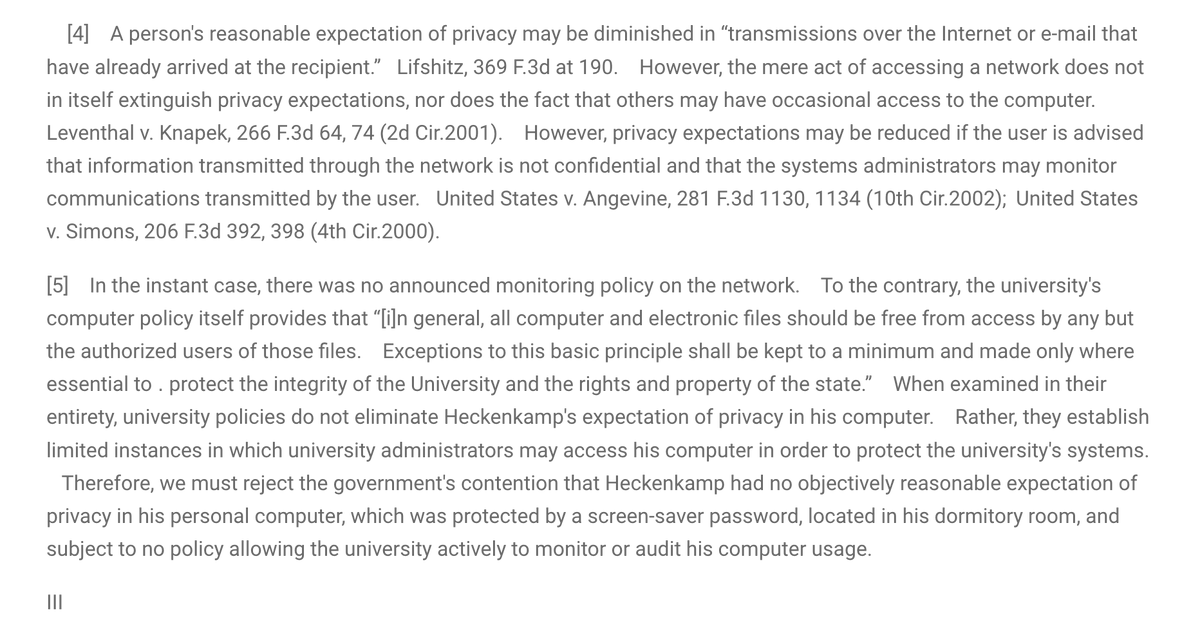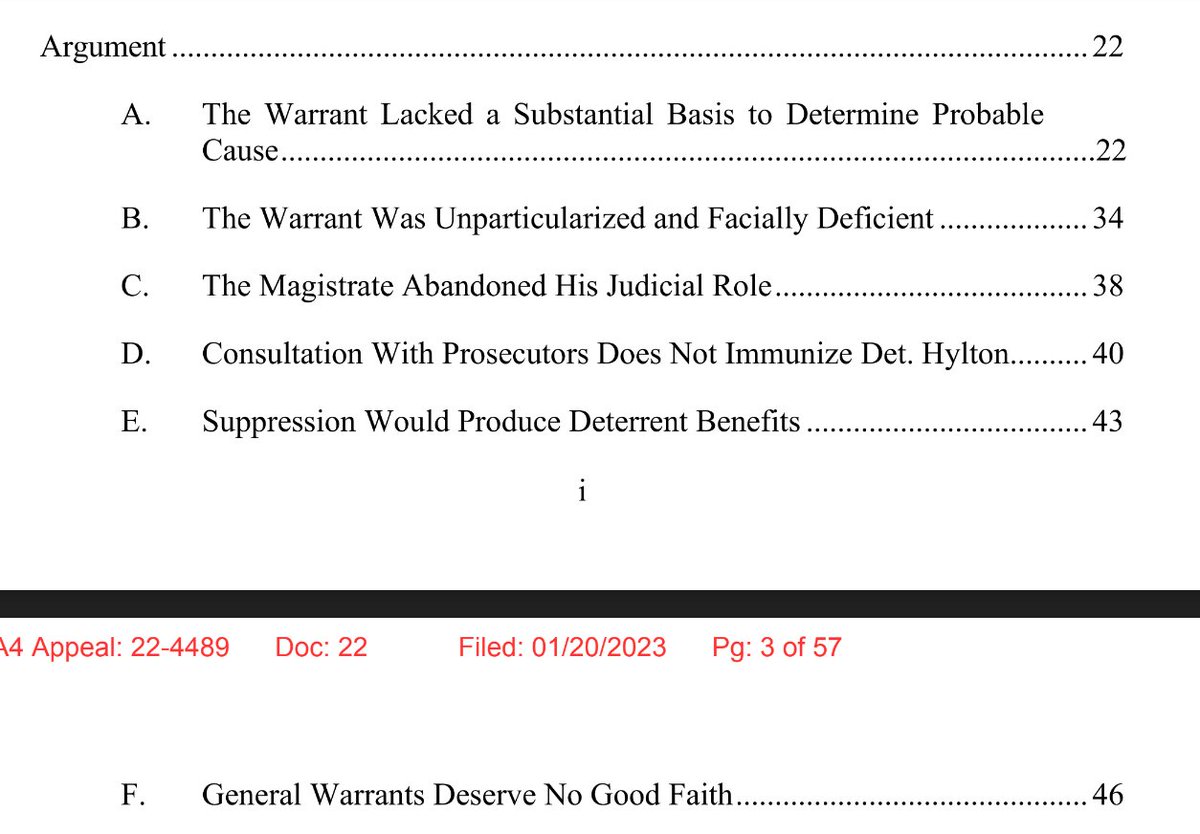
Oral argument in the 9th Circuit 2 weeks ago in US v. Bohannon in part on whether Terms of Service waive 4A rights in Internet accounts. (The panel has since remanded for fact-finding on the private search doctrine, according to Fourthamendment,com) #N
Most interesting discussion starts at the 22 min mark, when Judge Eric Miller starts pressing the AUSA on the Terms of Service argument. Does it apply to apartment leases? Can the NSA search? Judge Sanchez joins in at the 26:50 mark, suggesting arg is "in tension" w/ 4A law.
At 28:50, the AUSA tries to distinguish Byrd:, the SCOTUS rental car case.The particular TOS in Byrd weren't about expectations of privacy, while the TOS here are.
At 30, they're discussing US v. Heckencamp. The words there mattered.
My comment: But the judges are missing the key distinction: Heckencamp was a *government network* case! It was at a public uni. It relied on Ortega cases.
caselaw.findlaw.com/us-9th-circuit…
My comment: But the judges are missing the key distinction: Heckencamp was a *government network* case! It was at a public uni. It relied on Ortega cases.
caselaw.findlaw.com/us-9th-circuit…

Hmm, I wonder if I should include Heckencamp in my discussion of TOS and 4A cases in my forthcoming article. It's just another government case, but judges can miss that.
Anyway, my views here, of course.
Anyway, my views here, of course.
https://twitter.com/OrinKerr/status/1619849164170596352
I don't see the CA9 remand on WL or in the CA9 website, but this is what @JohnWesleyHall is reporting. 

• • •
Missing some Tweet in this thread? You can try to
force a refresh











